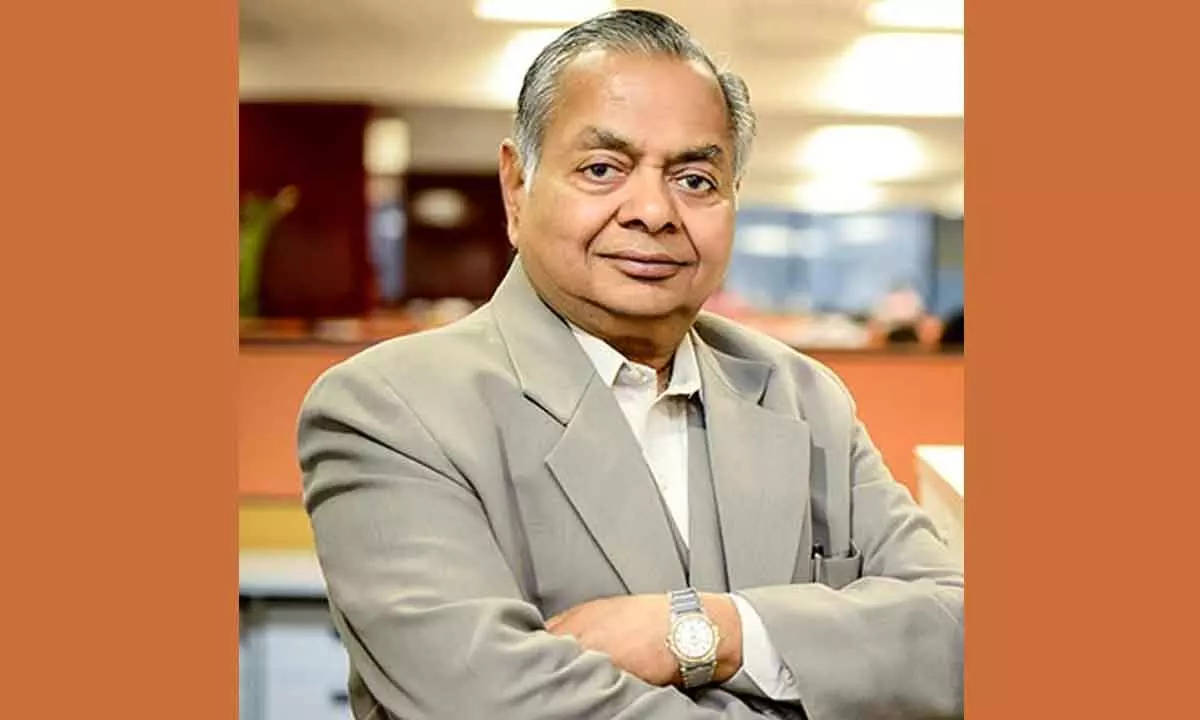Our precision farming advisory helps farmers generate maximum produce
All they (farmers) need is to click a photograph of soil, leaves, and insects and send it to us. Our experts will analyze it and suggest remedial action, says Dhanuka Group Chairman RG Agarwal
image for illustrative purpose

The Dhanuka Group, a leading crop and health protection company, recently started a research and development centre at Palwal in Haryana. "Farmers from across the country may be able to utilize our services. All they need is to click a photograph of soil, leaves, and insects and send it to us. Our experts will analyze it and suggest remedial action. This would be beneficial to farmers, whether they are in Patna, Hyderabad, or Chennai. In case a farmer is unable to understand a problem, we would rope in our field officers to explain and suggest the way forward for farmers. We are sure the measures suggested by our centre will help increase production and farmers' income," says Dhanuka Group Chairman RG Agarwal in an interview with Bizz Buzz
Your company has recently set up the Dhanuka Agritech Research & Technology Centre. It includes many facilities like organic synthesis and formulation. What is your vision that has taken shape in this centre?
Human beings require different treatments and medicines for different kinds of diseases. There are different departments like ENT, neurology, gastroenterology and cardiology; we approach them as per our requirements. Similarly, the requirements of plants and crops vary. There are various specializations, and for different diseases, the prescription needs to be different.
Generally, it would depend upon the contents of the soil, water quality, and many such aspects. The Dhanuka Agritech Research & Technology Centre or (DART) is an effort to provide the best possible solution to farmers and encourage them to adopt precision farming. In line with this vision, we have established several state-of-the-art facilities at our R&D centre at Palwal. It has several labs for organic synthesis, analysis, formulation, soil and water analysis, botanicals, bio-pesticides, bioassay, and insect-rearing. It also has a training centre. We are confident that it will benefit farmers and agriculture sector a great deal.
There is a mindset in our country that opposes any new development, especially in the agriculture sector. Even the Green Revolution was opposed. How do you look at this phenomenon?
There could be two things. Firstly, there is a possibility that many people don't really understand the benefits that may accrue from new developments, and hence they oppose them. The other reason for this could be vested interests, due to which they oppose even the good things like the construction of dams and power plants. Often they would receive funding from outside India.
Fortunately, the government and Prime Minister Narendra Modi understand this. Prime Minister has categorically said many times that there are some elements who don't want India to grow. A lot of NGOs have been behind such opposition and, thankfully, the government has identified many of them and de-registered them.
What would be the financial viability of DART?
It has been established under our flagship group company, Dhanuka Agritech Limited. The company will bear the entire expenses of the R&D Centre. Depending upon the commercial usage of the R&D Centre, the company will earn some revenue from it. But our real objective and motive is to promote research-based agriculture activities.
What are the initial focus areas of the newly commenced R&D Centre?
The objective behind the R&D Centre is to promote and encourage precision farming. In precision agriculture, we would focus on the nutrients that the soil requires, when it requires water, etc. We have set up weather stations, which would inform us about, among other things, the temperature, humidity, and chances of rain. This would facilitate farmers to act accordingly. Similarly, soil moisture monitors will let the farmers know about the moisture content of the soil and whether it requires water or not. The centre would also forecast the kind of insects and diseases that may hit the crops. It would also inform and demonstrate the benefits of drones to farmers.
Is there any geography that you have identified to serve from the newly commenced centre?
Farmers from across the country may be able to utilize our services. All they need is to click a photograph of soil, leaves, and insects and send it to us. Our experts will analyze it and suggest remedial action. This would be beneficial to farmers, whether they are in Patna, Hyderabad, or Chennai. In case a farmer is unable to understand a problem, we would rope in our field officers to explain and suggest the way forward for farmers. We are sure the measures suggested by our centre will help increase production and farmers' income.
The Indian industry is often accused of not investing in R&D activities. What is your take on it?
R&D is the need of the hour. Former PM Atal Bihari Vajpayeeji in 2022 gave a slogan of 'Jai Vigyan.' However, the adoption of science or vigyan in day-to-day life as well as in the agriculture sector has not been at the pace that he had envisaged. The incumbent Prime Minister in 2019 gave a slogan of 'Jai Anusandhan.' This is extremely important. The sooner we adopt Anusandhan or research, the better it would be.
It looks like the setting up this centre has been a smooth affair for you. Do you think it would have been the same 10-15 years ago?
There is an opportune time for everything. Who would have imagined electric vehicles 20-25 years ago! But people are buying them now. Similarly, there weren't many takers of solar power 15-20 years ago. Today, it is the cheapest source of energy. The key to every development or adoption of technology is its commercial viability. Unless something becomes financially viable, there won't be many takers.

